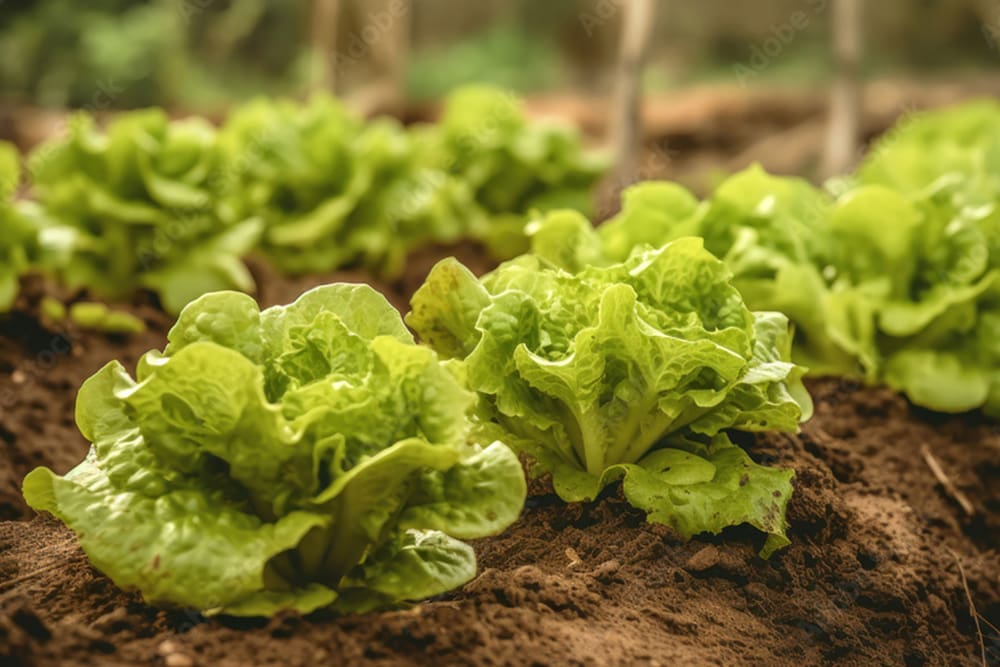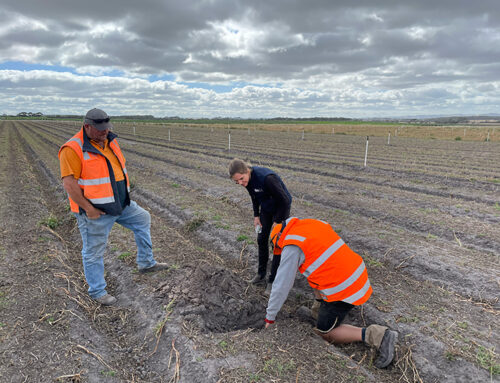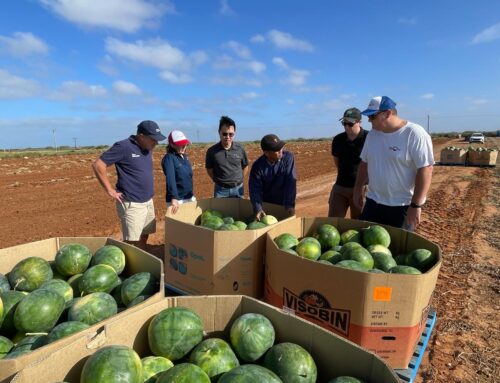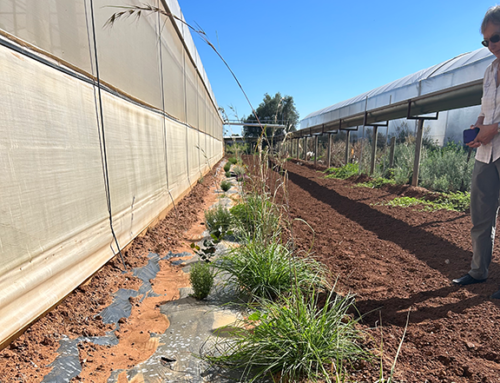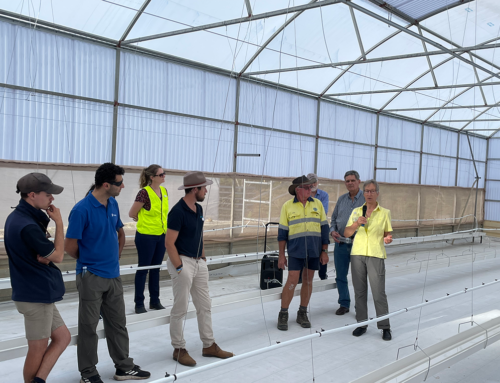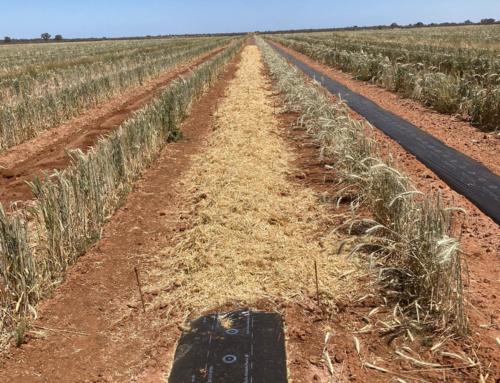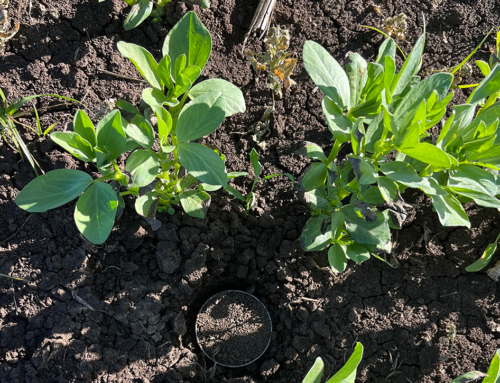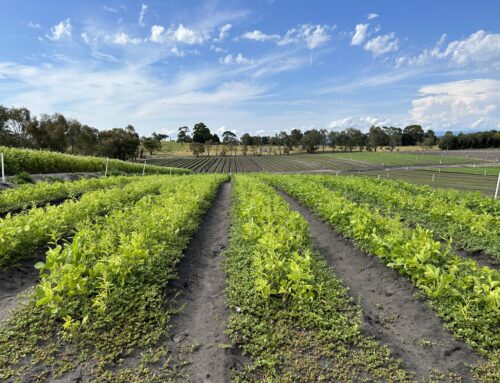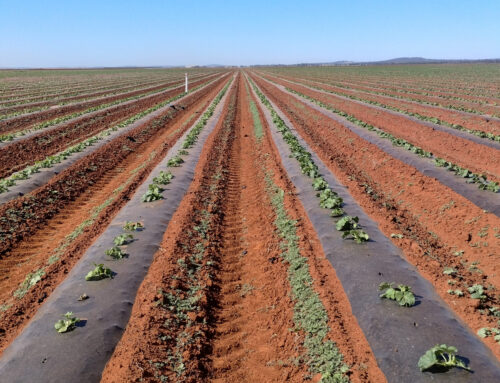In 2021, Soil Wealth ICP team members Doris Blaesing and Donna Lucas shared their expertise with a group of students from the Tasmanian Institute of Agriculture, who were conducting a trial on the effectiveness of an organic phosphorus fertiliser in providing adequate nutrients for plant growth when compared to an inorganic alternative.
Our team is always keen to support up-and-coming researchers who are interested in contributing to the future productivity and sustainability of the Australian vegetable and potato industries. Read more about the project below.
Sustainable phosphorus use: Can organic fertilisers provide adequate nutrients for plant growth in comparison to inorganic forms?
James Aird and team members William Smith, Matilda Scott and Kai Peersman
Phosphorus is an essential macronutrient for plant growth and it is commonly applied to crops to increase yields. While the application of phosphorus fertilisers is typically in inorganic forms, problems have arisen around the impact of these soluble inorganic phosphorus fertilisers on the surrounding ecosystems and the sustainability of their use in agriculture.
This trial compared the use of a more stable organic phosphorus fertiliser with an inorganic alternative on cos lettuce plants grown in sandy loam and ferrosol soils.
At the beginning of the trial, the phosphorus levels of the soil were tested and the pots filled with soil mixed with coconut coir. The appropriate fertiliser was applied and mixed through the soil prior to planting the seedlings – the trial ensured the same amount of phosphorus was applied to both treatment groups. An all-purpose foliar spray was also applied to prevent nutrient deficiencies.
Measurements of the plants were taken weekly, including the number of leaves and leaf length. At the end of the trial, the plants were uprooted and the length of the shoots and roots were measured.
Results
The results of this trial suggested there was limited difference in the effect of organic phosphorus fertilisers over inorganic alternatives on the early growth of a cos lettuce plant.
While the root lengths of plants given organic phosphorus fertiliser were significantly greater than the inorganic fertilised plants in sandy loam soil, this finding was inconsistent with the rest of the trial findings where there were no other differences found between the growth of the plants under organic or inorganic fertilisers.
Given the potential for greater use of organic phosphorous in agricultural production to reduce environmental impacts and phosphorus losses, it was recommended that future research should be conducted with different rates of the phosphorus treatments applied at different times.
Find out more
For more information on these projects, please contact TIA Lecturer in Crop Science and Junior Research Fellow Harriet Walker at harriet.walker@utas.edu.au.

